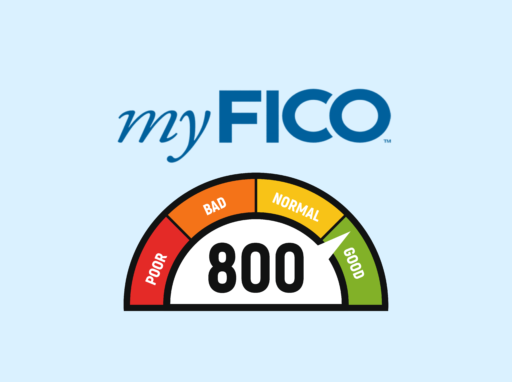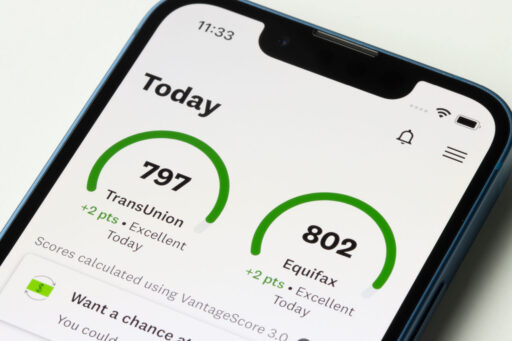*Disclaimer: This content is for informational purposes only and should not be taken as financial advice. Wallet Monkey may earn a commission from partner links in this article. Rates and offers are accurate as of publication but may change over time.
Key Takeaways
- Hard inquiries stay on your credit report for two years, but only affect your score for about one year.
- A few inquiries are normal, multiple within a short time can signal higher risk.
- Always verify unfamiliar inquiries and dispute unauthorized ones.
- If you’re a business owner, choose lenders who report to business credit bureaus to strengthen your business profile.
- Keep your payment history solid, credit utilization low, and apply for new credit strategically.
If you’ve applied for a new credit card, auto loan, or small business loan, you’ve likely encountered a hard credit inquiry (also known as a hard pull).
A hard inquiry happens when a lender checks your credit because you applied for new credit; they’re ultimately evaluating your ability to repay.
On the other hand, a soft inquiry happens when you check your own credit or when a company pre-screens you for an offer. Soft inquiries don’t affect your credit score.
So why do hard inquiries matter? Because too many in a short period can signal to lenders that you’re financially overextended or taking on too much new debt (you want to avoid this at all costs).
Table of Contents
When Do Hard Inquiries Fall Off Your Credit Report?
Here’s the quick answer:
- Hard inquiries stay on your credit report for up to two years.
- However, they only affect your credit score for about 12 months.
That means lenders can see them for 24 months, but the impact fades much sooner.
In most cases, a single hard inquiry only lowers your score by a few points. It’s temporary, and it’s rarely a dealbreaker.
Why Hard Inquiries Don’t Hurt Your Credit Score Forever
When a hard inquiry hits your report, you might notice a small dip in your score (often around 3–5 points).
Here’s how it plays out over time:
| Timeframe | What Happens | Impact on Your Score |
|---|---|---|
| 0–3 months | New inquiry appears | Small, temporary dip |
| 3–12 months | Still visible but fading | Gradual recovery |
| 12–24 months | Still visible to lenders | No scoring impact |
| 24+ months | Inquiry removed | No trace remains |
Note: Hard inquiries typically remain on your credit report for 2 years but only affect your score for about 12 months.
The key takeaway? Hard inquiries have short-term effects. The best way to offset them is to keep your payment history strong and your credit utilization low.
How Much Does a Hard Inquiry Affect Your Credit Score?
The exact impact depends on your credit profile:
- Strong credit history: If you already have established accounts and on-time payments, a new inquiry might barely move your score.
- Thin credit file: If you’re new to credit, a single inquiry might have a slightly bigger effect.
- Multiple inquiries: Applying for several credit cards or loans in a short time can make lenders nervous and cost you a few more points.
That said, credit scoring models (like FICO and VantageScore) group similar inquiries together if they’re made within a short window.
For example, if you’re shopping for a mortgage or auto loan and apply with several lenders within 14–45 days, those pulls count as one inquiry for scoring purposes.
Tips to Minimize the Impact of Hard Inquiries
- Plan your applications strategically: Apply only when you truly need new credit, whether it’s for a home, a car, or business funding.
- Group rate-shopping: Complete your applications within a short window so they count as one inquiry for scoring purposes.
- Focus on the big factors: Payment history and credit utilization make up 65% of your FICO score. Hard inquiries are a small slice in comparison.
- Monitor your credit regularly: Tools like True Finance or Credit Karma can help you stay on top of new inquiries and protect your identity.
Business Owners: How Hard Inquiries Affect Business Credit
If you’re building business credit, the rules can be slightly different.
When you apply for a business loan or credit card, lenders may:
- Check your personal credit, which results in a hard inquiry on your personal report.
- Check your business credit, which appears on your business credit report (e.g., Dun & Bradstreet, Experian Business, or Equifax Business).
Here’s what matters most for entrepreneurs:
| Credit Type | Inquiry Affects | Duration | Notes |
|---|---|---|---|
| Personal Loan / Card | Personal report | 2 years | Can impact both personal & business creditworthiness |
| Business Loan (with PG)* | Personal & Business | 2 years | Requires a personal guarantee |
| Business Loan (no PG) | Business only | 2 years | Impacts only business credit reports |
*PG = Personal Guarantee. Some business loans report to both personal and business bureaus if a personal guarantee is required.
When building business credit, spread out applications and focus on lenders that report to business bureaus, not just personal ones.
Over time, consistent payments and strategic borrowing can establish strong business credit, reducing your reliance on personal guarantees.
Final Thoughts: Hard Inquiries Are Not the End of the World
Hard inquiries are a normal part of building credit, whether you’re buying a home, a car, getting a new credit card, or growing your business. They fade over time and matter far less than the habits you build along the way.
If your goal is to strengthen both your personal and business credit, Wallet Monkey has tools and guides to help you make smarter financial moves and get closer to funding your next big step.
FAQs About Credit Report Inquiries
1. How many hard inquiries are too many?
There’s no exact number, but more than 4–6 within a few months may raise red flags to lenders.
2. Do soft inquiries show up on my report?
Soft inquiries are visible only to you and do not affect your credit score.
3. Do hard inquiries affect both FICO and VantageScore?
Yes, both scoring models consider hard inquiries, though the impact typically lasts about 12 months.
4. How do I know if a hard inquiry is unauthorized?
Check your credit report for unfamiliar lenders. If you spot something suspicious, dispute it directly with the bureau.
5. Do business credit inquiries affect my personal credit?
Only if the business lender checks your personal report or requires a personal guarantee.
Top Relevant Articles
How to Boost Your Credit in 30 Days
Quick tips to improve your credit score fast and effectively.
Best Credit Cards for Beginners
A guide to the best credit cards for people starting their credit journey.
Best Credit Cards for Bad Credit
Explore the top credit card options for those with poor credit.





